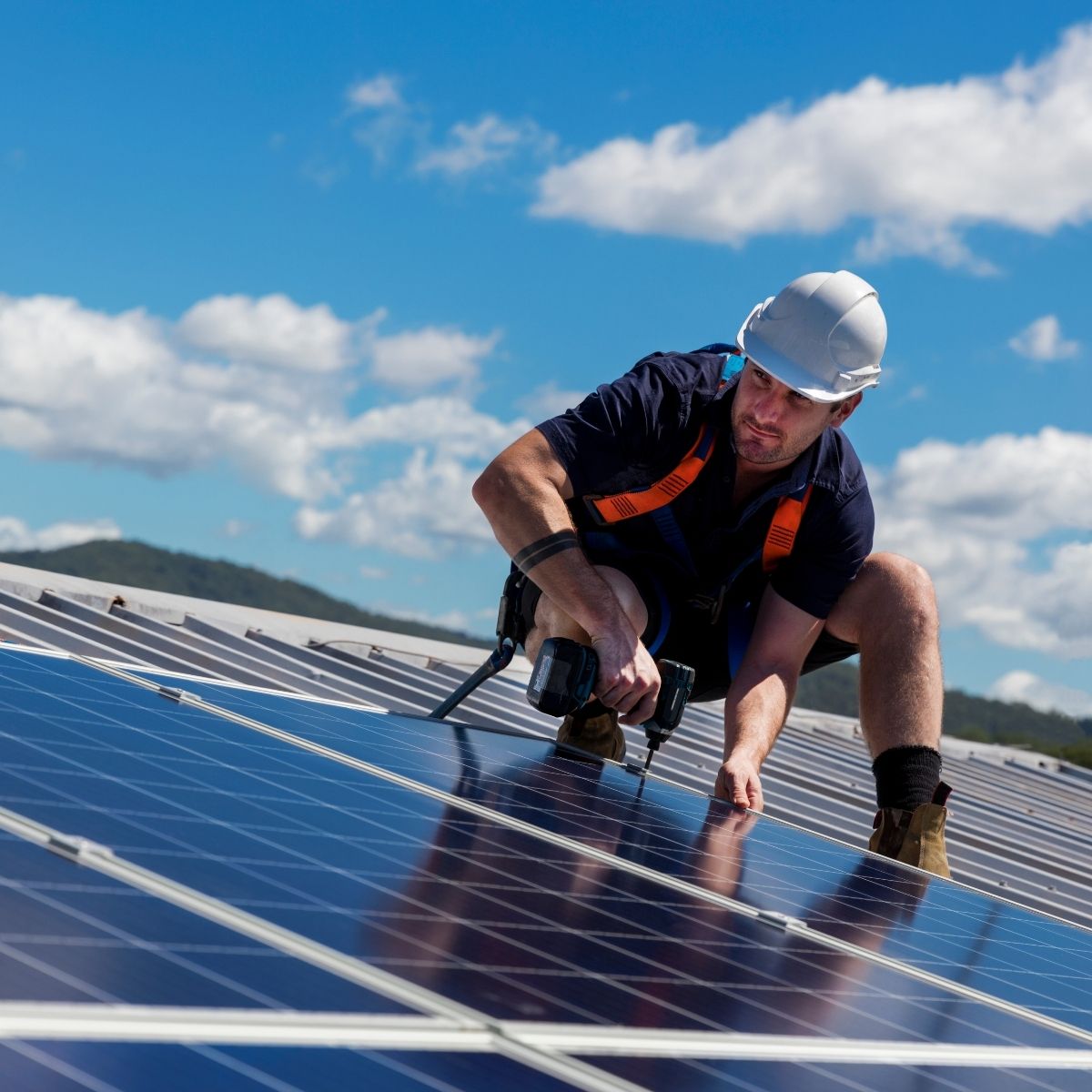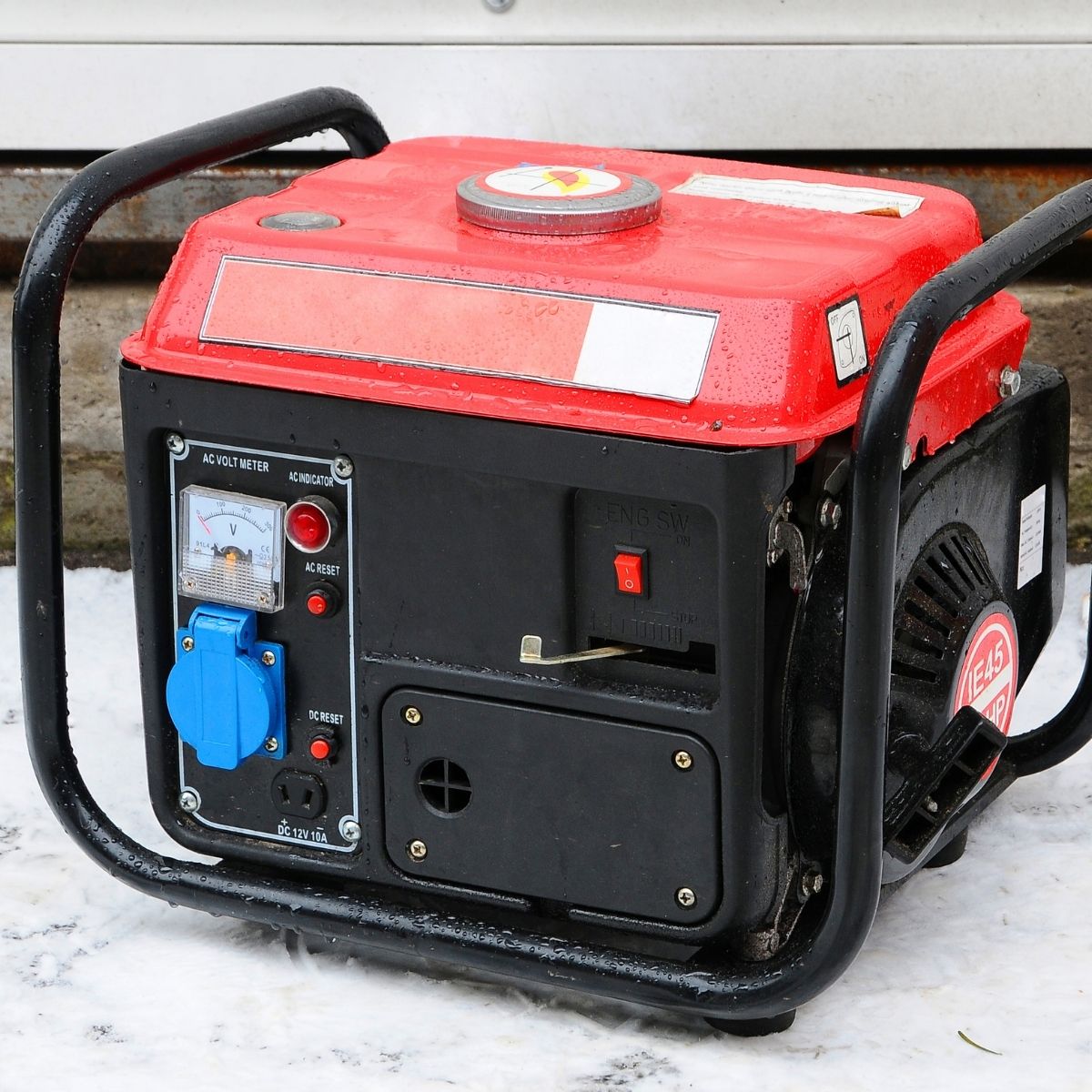Disclosure: This post may contain affiliate links. This means that at no cost to you, we may earn a small commission for qualifying purchases.
Last Updated on April 7, 2024
Emergency backup generators have been a mainstay in American households for decades. In the meantime, solar has come a long way since the golden days of hiding a solar calculator under the desk in 6th-grade math class. Which is better a generator or solar panel?
While Solar Panels are constantly achieving new technological highs, they’re still not as efficient as gas-powered generators. And while they may be a cheaper alternative down the road, upfront expenses and the fact that the sun never cooperates hold the technology back.
In terms of which one is the better alternative off the grid, then it should be considered from the standpoint of having both, with power for nearly every circumstance with one backup source feeding and relieving the other and vice versa.
Both have their pros and cons, however, and as energy prices continue to climb, solar looks better. When energy prices drop, there’s generally a rush to secure gasoline power. Ultimately, efficiency is the key factor.
Contents
Solar Panel Pros And Cons

Drawing and storing energy from the sun isn’t a new concept, despite how it may seem with green energy alternatives cropping up everywhere. Solar cells have been around for a century, with practical usage beginning in 1954.
So there’s has been a great deal of time between concept and practical use and that time has allowed for innovation and improvements along the way.
Benefits of Solar Panels
Once the upfront costs are taken care of—and so long as you maintain them and keep them clean — solar panels provide a source of free energy. The only way they charge is via the sun’s rays, which are completely free.
Solar panels also work to relieve standard energy consumption all year long, rather than just operating primarily as a backup source of power. Energy savings are derived from the solar panels alleviating the normal strain on your network.
Thanks to federal and state governments pushing energy alternatives, you also get tax credits for purchasing and installing solar power cells on your home. If you install them on your roof, solar panels extend its durability by shielding it from the elements.
Notice we haven’t mentioned “environmentally clean.” More on that in the cons section.
Drawbacks Of Solar Panels
Despite their ability to alleviate high energy costs, there are plenty of drawbacks as well. Some of them may be enough to turn your ideas on solar panels around.
Solar panels aren’t tied into your electrical system directly but to sets of batteries which are then tied into the rest of your home. It takes a long time to charge up the batteries, especially if your home draws on a lot of energy throughout the year.
The upfront cost for solar panels is pretty large. For instance, you’re looking at a cost of $8,000 plus to install enough solar panels to make a difference in a 1,500 sq. ft. home. Granted, you’ll save money in the long run, but it’s a matter of how long it will take to mitigate the loss.
The sun doesn’t do what we tell it to do and for long periods of time—especially during the rainy seasons or in winter—you may not get much use out of the system at all. A solar panel simply doesn’t derive much energy from the sun through a cloudy sky.
Lastly, solar panels are not so green and environmentally friendly after all. The overall scorecard issued by the Silicon Valley Toxics Coalition indicates that the manufacturing process is not so high on the environmentally friendly chart.
Solar Panels are produced using several toxic chemicals, such as sodium hydroxide and hydrofluoric acid, as well as lead. Unfortunately, as solar panels age, they tend to “bleed off” some of the toxic residues that went into its manufacturing, including the lead.
They’re also highly toxic as they degrade in a landfill, far more than the general public is aware of.
| Pros | Cons |
|---|---|
| Free power supply for the life of the panels (after upfront costs) Tax Credits for homeowners Raises the value of homes Reduces energy consumption from standard energy production Protects your roof if they’re installed there | More toxic than public perception believes Take a long time to charge No sun = no power Costly upfront investment |
Portable Generator Pros And Cons

For generations, portable generators have been the primary backup supply in case of a power outage. Generators are primarily powered by gasoline, while some are essentially giant battery packs.
For as long as they have fuel, portable generators are capable of powering several, high-end devices.
Benefits Of Portable Generators
Portable generators don’t distribute power across the grid, like solar panels, but to individual devices, or your primary necessities in the event of a sustained power loss. The larger and more efficient the generator, the more it can power and longer.
So long as it has a fuel source, a single generator can run your air conditioning system, power necessary devices such as refrigerators and freezers. You can also quickly and easily switch from one device to another when needed.
For instance, you’ve kept your fridge and freezer running for most of the day and now you need to wash clothes. The refrigerator and freezer can sustain themselves for hours with no power, so long as they aren’t being opened. Simply switch to the washer and dryer then back when you’re done.
If you need to juice up a battery, a generator will do it quickly, including large ones for tractors, cars, or boats. It’s also a simple means with which to keep devices charged on a power strip—cell phones, tablets, laptops—especially since they may be necessary for emergencies.
Drawbacks Of Portable Generators
The first and most obvious is that they rely on gasoline, which is why it is imperative to stock up during better weather. If you live in hurricane-prone areas, it’s even more essential.
They’re also bulky and difficult to move around when you need to power devices at a distance, so you may end up with several extension cords running across your house.
Since generators are so loud, they’re often limited when running at night in order to avoid any complaints or run-ins with law enforcement. This is mostly an issue if you live in a heavily populated area or a dense neighborhood.
Make sure to pick the quietest generators to overcome this issue.
Like a car engine, generators can break down as well. Since it’s a gas-fed motor, there are a lot of moving parts. It has to be a well-maintained machine, not something that sits quietly and collects dust in the corner of the shed for most of the year.
| Pros | Cons |
|---|---|
| Runs numerous, individual devices Larger ones can run your HVAC system Doesn’t depend on the weather Relatively inexpensive Quickly charges heavy to light duty batteries You can quickly and efficiently switch devices | Runs on gasoline, so it has to be restocked, or it’s useless Heavy and bulky Loud at night More prone to breaking down than solar panels |
Solar Panels Versus Portable Generators
Since the two are so vastly different in the sources of fuel and what they can operate, it’s difficult to make a direct comparison. Solar panels aren’t meant to fully take on heavy electrical loads for any sustained period of time.
However, solar panels are quite adept at facilitating your existing power and effectively reducing your consumption and power bill.
Generators, on the other hand, are far better at keeping individual devices running or charged up. This is especially necessary for emergency situations or during sustained power outages.
Like it or not, solar panels simply cannot replenish their power supply if adverse weather lasts for an extended period of time.
The greatest value to be taken from the solar panel versus generator debate is how well the two can actually be combined together to cover all of the bases.
Using the solar panels to keep your batteries charged when it’s sunny and the generator to keep them charged when it’s not is the perfect combination for sustained energy even during a crisis. They both have their positives and negatives, however, they truly shine when the best that each has to offer is combined.
See Also: Paxcess Solar Generator
Leave a Reply
You must be logged in to post a comment.